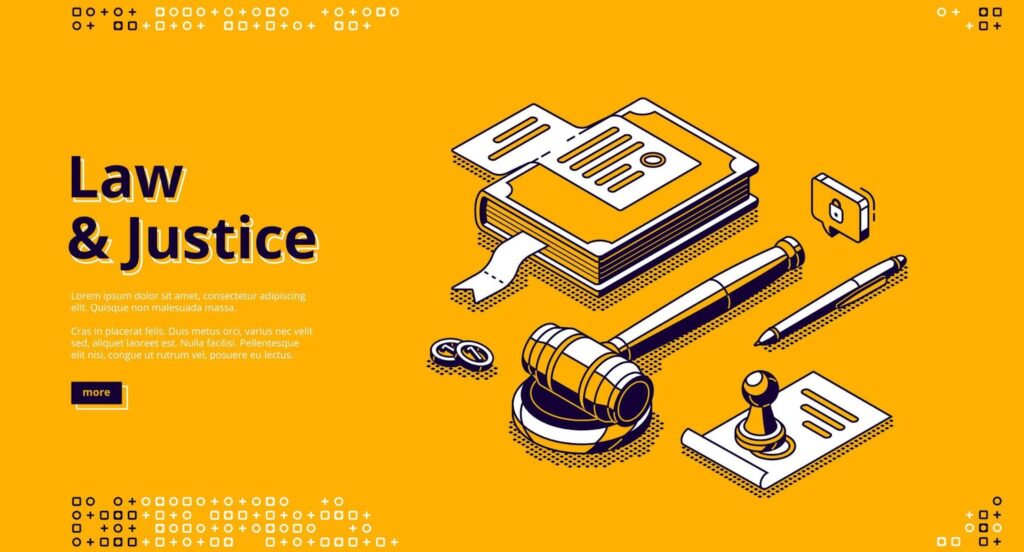How to Effectively Negotiate a Car Insurance Claim with State Farm in Texas: A Comprehensive Guide

Navigating the aftermath of a car accident in Texas can be overwhelming, especially when it comes to dealing with car insurance claims. State Farm, one of the largest insurance providers in the United States, often finds itself at the center of such negotiations.
This guide aims to equip you with the knowledge and strategies necessary to negotiate a car insurance claim with State Farm, ensuring you receive the compensation you deserve.
Understanding the Basics of Car Insurance Claims in Texas
Navigating the aftermath of a car accident in Texas can be overwhelming, especially when it comes to dealing with car insurance claims. State Farm, one of the largest insurance providers in the United States, often finds itself at the center of such negotiations.
This guide aims to equip you with the knowledge and strategies necessary to negotiate a car insurance claim with State Farm, ensuring you receive the compensation you deserve.
Fault-Based Insurance System
In Texas, the fault system determines who is responsible for paying for damages after a car accident. Unlike in no-fault states, where each party files a claim with their own insurance regardless of who caused the accident, Texas requires the at-fault driver’s insurance to pay for the other party’s losses.
This system underscores the importance of determining fault after an accident, which can involve police reports, witness statements, and sometimes, legal proceedings.
Filing a Claim
After an accident, the injured party (or parties) must file a claim with the at-fault driver’s insurance provider to seek compensation for damages.
This process begins with notifying the insurance company about the accident and providing necessary details such as the time, location, and circumstances of the incident, along with any evidence of damages and injuries sustained.
Dealing with Insurance Adjusters
Once a claim is filed, the insurance company assigns a claims adjuster to the case. This professional’s role is to evaluate the claim, assess the damage, and determine the amount of money the insurance company should pay out.
It’s crucial to remember that claims adjusters represent the interests of their employer – the insurance company – and their primary goal is to minimize the company’s financial payout.
Uninsured and Underinsured Motorist Coverage
Given the reality that not all drivers carry adequate insurance, Texas law allows for uninsured and underinsured motorist coverage.
This provision is an optional addition to your insurance policy that protects you if the at-fault driver lacks sufficient insurance to cover your damages or if you’re involved in a hit-and-run accident. Opting for this coverage ensures you have a safety net, providing additional peace of mind on the road.
The Role of Claims Adjusters
Upon filing a claim with State Farm, a claims adjuster will be assigned to your case. Their primary goal is to resolve the claim while minimizing expenditure for State Farm.
It’s crucial to remember that the adjuster’s interests may not align with yours, as they are focused on settling your claim for as little as possible.
Investigation and Assessment
A claims adjuster’s primary responsibility is to conduct a thorough investigation into the claim. This involves gathering all pertinent information, including documentation, photographs, police reports, and witness statements. For car accidents, it may also include inspecting vehicle damage in person, consulting with automotive repair professionals, and assessing the scene of the accident.
This comprehensive investigation is vital for understanding the circumstances surrounding the claim and for establishing the validity and scope of the claim.
Damage Evaluation
Following the investigation, claims adjusters evaluate the extent of the damages. This process is crucial for determining the financial responsibility of the insurance company under the policy’s terms. Adjusters must accurately estimate the cost of repairs, medical expenses, and any other losses incurred by the claimant.
This evaluation requires a deep understanding of the policy details, as well as expertise in the specific area of the claim, such as automotive repair costs or medical treatment expenses.
Settlement Negotiation
With a thorough understanding of the damages and the policy coverage, claims adjusters then engage in negotiations with the claimant to reach a settlement. This part of their role involves presenting the insurance company’s settlement offer and negotiating with the claimant or their attorney. The goal is to arrive at an agreement that is fair to both the claimant and the insurance company, within the bounds of the policy.
This requires excellent negotiation skills and a fair, objective approach to each claim.
Claim Resolution
After reaching an agreement, the adjuster finalizes the claim resolution process. This includes preparing and processing the necessary paperwork, issuing payment to the claimant, and ensuring that all aspects of the claim are concluded satisfactorily.
Adjusters also provide explanations to claimants regarding the details of the settlement and any pertinent information about their policy coverage and the claims process.

Navigating the Claim Negotiation Process
While you have the option to negotiate your claim independently, the complexities involved often warrant professional legal assistance.
If you choose to proceed alone, here are several tips to enhance your negotiation success:
Preparing for Negotiation
- Gather Comprehensive Documentation: Before entering negotiations, compile all relevant documents, including medical records, repair estimates, photos of the damage, police reports, and any other evidence that supports your claim. This documentation will serve as the foundation of your argument for a fair settlement.
- Understand Your Policy: Familiarize yourself with the details of your insurance policy. Knowing what is covered and the limits of your coverage can provide you with a strong basis for your negotiation. This knowledge prevents insurance companies from unfairly denying coverage or underestimating your claim.
- Calculate Your Damages: Determine the total cost of your damages, including both economic (e.g., medical bills, lost wages, repair costs) and non-economic damages (e.g., pain and suffering). Having a clear figure in mind gives you a target for negotiation and helps prevent accepting a lower settlement than you deserve.
Engaging in Negotiation
- Initial Contact: The negotiation process typically begins once the insurance adjuster has reviewed your claim and made an initial settlement offer. It’s common for this first offer to be lower than what you need or deserve. Don’t feel pressured to accept it immediately; you have the right to negotiate.
- Communicate Effectively: When responding to offers or presenting your case, be clear, concise, and assertive. Emphasize the evidence you’ve gathered and be prepared to explain why the settlement offered is insufficient based on your damages and policy coverage.
- Be Patient but Persistent: Negotiations can be a lengthy process. Insurance companies may employ delay tactics or extend low offers in the hope that you’ll accept out of desperation or frustration. Maintaining patience and persistence is key. Stick to your calculations and continue to advocate for a fair settlement.
Strategies for Successful Negotiation
- Highlight the Strength of Your Evidence: The stronger your evidence, the better your position in negotiations. Make it clear that you have thoroughly documented your claim and are prepared to defend your valuation of the damages.
- Use Emotional Intelligence: While it’s important to remain factual and professional, expressing how the incident has impacted your life personally can add weight to your negotiations. Sharing the personal consequences of your damages can sometimes encourage adjusters to offer a fairer settlement.
- Know When to Involve a Professional: If negotiations reach a stalemate, or if the adjuster’s offers are consistently unreasonable, consider hiring a legal professional. An experienced attorney can apply pressure on the insurance company and may have more leverage in negotiations due to their knowledge and experience.
Understand the Adjuster's Motivations
Recognize that the adjuster’s main objective is to save the company money. By openly discussing the extent of your injuries, the accident’s impact on your life, and your financial hardships, you make it more challenging for the adjuster to justify a lowball offer.
Efficiency and Resolution Speed
Adjusters are often handling multiple claims simultaneously and are under pressure to resolve claims efficiently. This desire for swift resolution can work to your advantage in negotiations. By presenting a well-documented and justified claim, you can make it easier for the adjuster to justify a fair settlement to their superiors, potentially speeding up the negotiation process.
Risk Management
Claims adjusters also aim to manage risk for the insurance company. This involves assessing the likelihood of a claim resulting in a lawsuit if the settlement offer is too low. Litigation is costly and time-consuming for insurance companies. If an adjuster believes that offering a low settlement increases the risk of litigation, they may be more inclined to offer a more reasonable settlement to avoid legal proceedings.
Maintaining Customer Satisfaction
Although cost minimization is a priority, adjusters also understand the importance of customer satisfaction. Insurance companies rely on retaining policyholders and maintaining a positive public image.
Adjusters are therefore motivated to find a balance between minimizing payouts and ensuring the claimant’s satisfaction to some extent. Highlighting your long-standing relationship with the insurer or expressing how a fair settlement would positively influence your perception of the company can sometimes influence the adjuster’s flexibility.
Compliance with Legal and Company Policies
Adjusters must navigate the complex landscape of legal requirements and company policies when assessing claims. They are motivated to ensure that settlements comply with state laws and regulations while adhering to the insurer’s guidelines. Demonstrating your understanding of your policy and the relevant laws can make it more challenging for an adjuster to justify a low settlement offer.

How to Use This Understanding to Your Advantage
Be Prepared and Professional: Approach negotiations with comprehensive documentation and a clear understanding of your claim’s value. This demonstrates to the adjuster that you are informed and serious about reaching a fair settlement.
- Communicate Effectively: Express your willingness to resolve the claim efficiently while also making it clear that you expect a fair and reasonable settlement. This aligns with the adjuster’s goal of efficient resolution.
- Leverage the Risk of Litigation: While it’s important not to make unfounded threats, subtly indicating your willingness to explore all options for a fair settlement can make the adjuster weigh the risk of litigation more carefully.
- Emphasize Customer Loyalty: If you have been with the insurance company for a long time, mentioning your history and expressing your desire to continue the relationship can sometimes influence the adjuster’s approach to your claim.
Master the Art of Negotiation
Expect a back-and-forth negotiation process. The adjuster will likely counter your initial settlement request with a lower offer. It’s essential to demand
justification for any reduced offers and to stand firm on your needs. If the adjuster cannot provide a satisfactory explanation, argue persistently for a higher settlement based on your calculated damages.
The Importance of Legal Representation
While it’s possible to negotiate with State Farm on your own, the experience can be daunting and may result in a less favorable outcome. Hiring an attorney specialized in car accident claims offers numerous advantages:
- Expertise: An experienced attorney is familiar with the intricacies of negotiating with insurance companies like State Farm. They understand the tactics adjusters use and know how to counter them effectively.
- Accurate Damage Calculation: Lawyers have the skills to accurately assess the full extent of your damages, ensuring your settlement reflects the true cost of your injuries and losses.
- Advocacy: Having legal representation signals to State Farm that you are serious about receiving fair compensation. Insurers are often more willing to offer reasonable settlements to avoid the possibility of facing experienced legal counsel in court.
Finding the Right Attorney
When seeking legal representation, look for an attorney with a track record of successfully handling car insurance claims in Texas. Consider factors such as experience, client testimonials, and willingness to fight for your rights. A good attorney not only increases your chances of a higher settlement but also alleviates the stress of navigating the claims process on your own.
Maximizing Your Settlement: Key Strategies
To ensure the best possible outcome in your negotiations with State Farm, adhere to the following strategies:
- Document Everything: Keep detailed records of all expenses related to your accident, including medical bills, repair costs, and any lost wages. Comprehensive documentation strengthens your position during negotiations.
- Communicate Effectively: Be clear, concise, and assertive in your communications with the claims adjuster. Avoid accepting the first offer, as initial settlements are often lower than what you may be entitled to.
- Understand the Law: Familiarize yourself with Texas’s insurance laws and regulations. Knowledge of pertinent legal principles can empower you during negotiations and help you make informed decisions.
- Stay Patient: Negotiating a fair settlement can be a lengthy process. Patience is key. Rushing to accept an offer might result in receiving less than you deserve.
Conclusion
State Farm in Texas can be a challenging endeavor, fraught with complexities and potential pitfalls. However, armed with the right knowledge, preparation, and possibly the support of a skilled attorney, you can navigate this process more effectively and increase your chances of securing a fair settlement.
Remember, understanding the motivations of claims adjusters, accurately calculating your damages, mastering negotiation tactics, and considering the benefits of legal representation are crucial steps toward achieving a favorable outcome.
Negotiating a car insurance claim is not just about recovering financially from your immediate losses.
It’s also about ensuring that your future, particularly in terms of health and financial stability, is protected. Whether you decide to tackle this process on your own or with the help of an attorney, the goal remains the same: to receive just compensation that reflects the true extent of your losses and suffering.
By approaching your claim with diligence, persistence, and informed strategy, you stand a much better chance of navigating the complex landscape of insurance claims successfully. Remember, every negotiation is unique, but your right to a fair and just settlement is universal. Don’t hesitate to fight for what you deserve, and consider every available avenue to strengthen your position.
